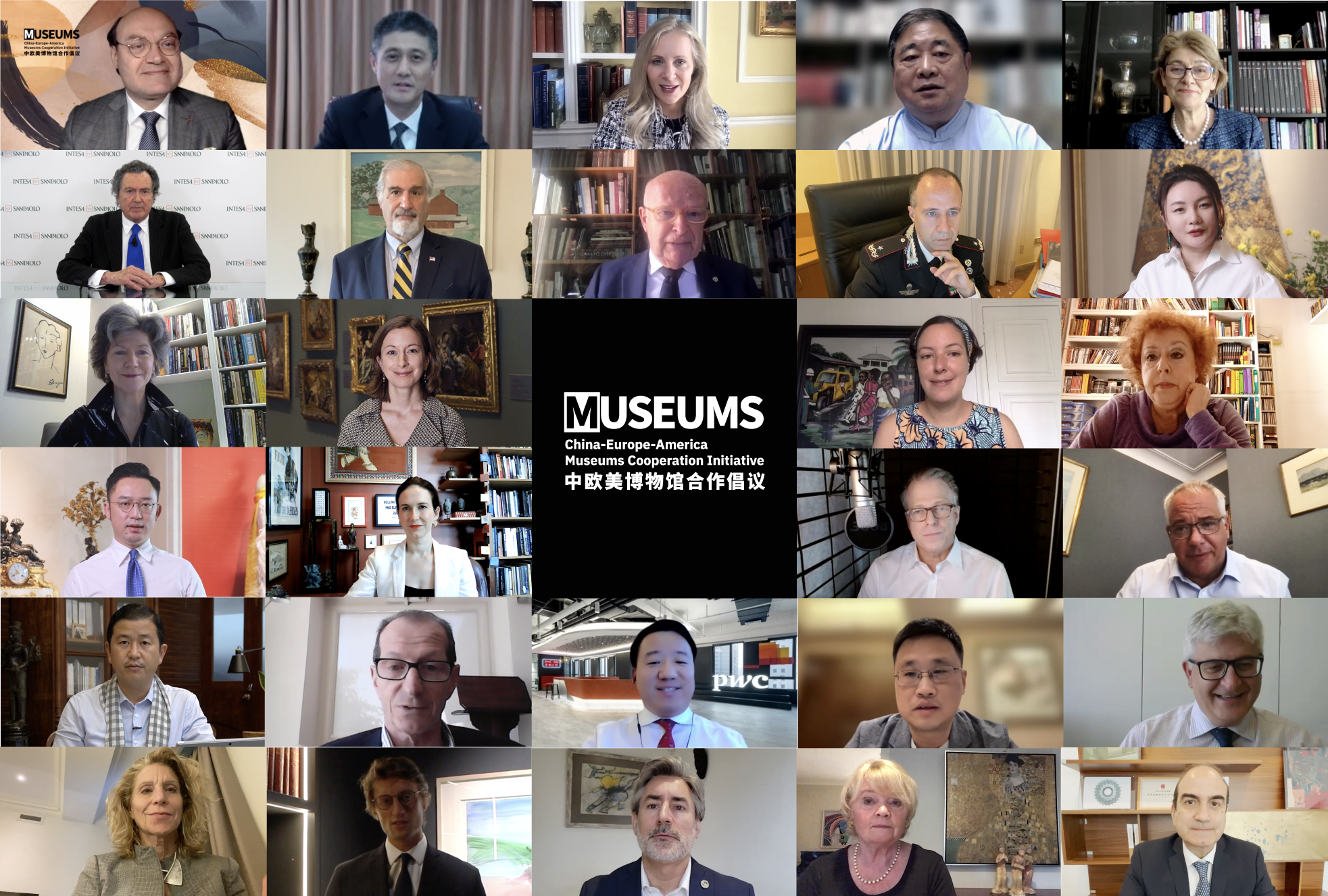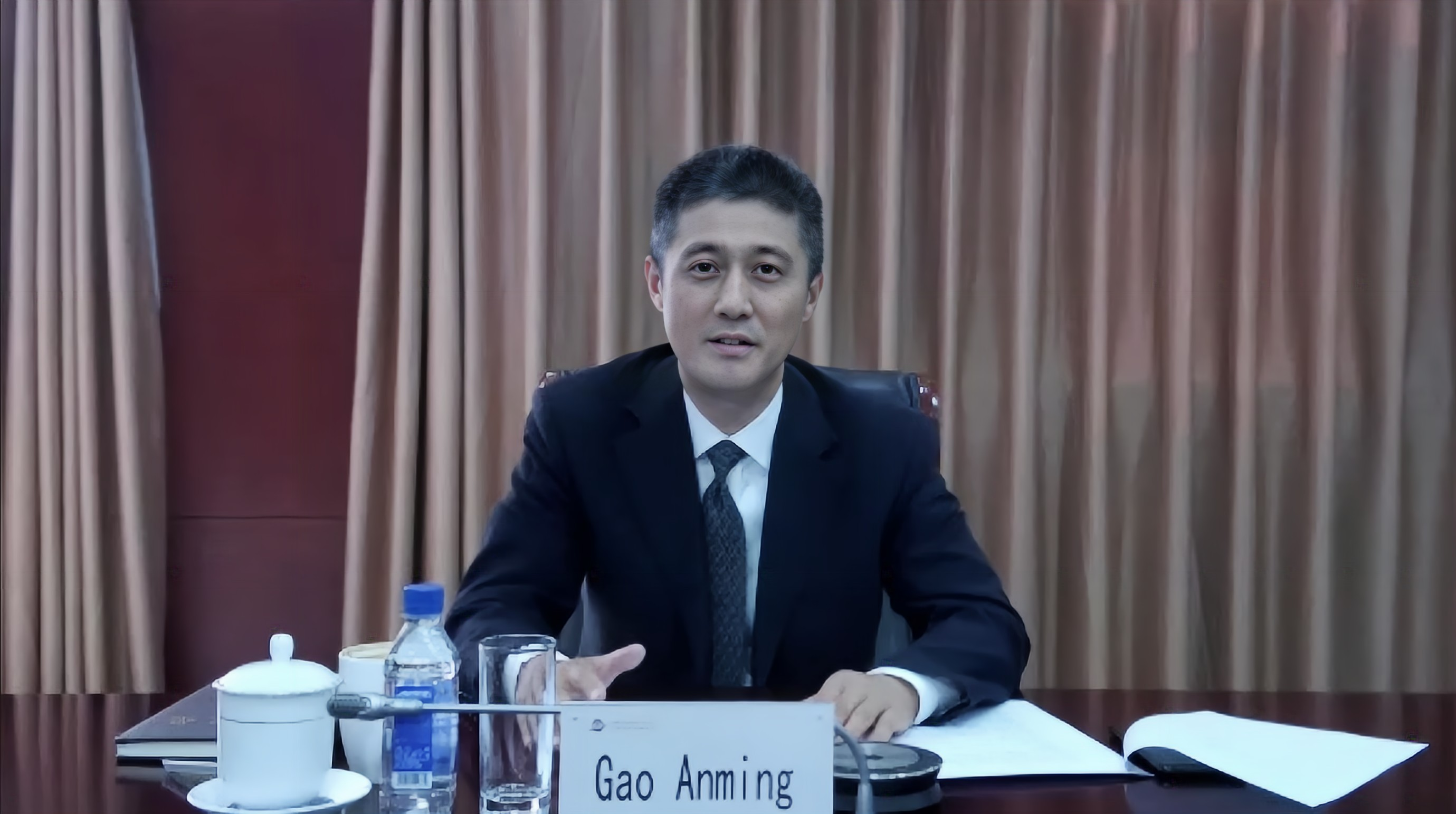Experts call for int'l cooperation in cultural heritage protection
- By Zhang Jiaqi
 0 Comment(s)
0 Comment(s) Print
Print E-mail China.org.cn, May 20, 2022
E-mail China.org.cn, May 20, 2022
Over 30 globally recognized experts shared insights into the role of museums in cultural heritage protection and the fight against art trafficking at the second dialogue of the China-Europe-America Museums Cooperation Initiative on Thursday.

Held the day after the International Museum Day on May 18, the dialogue echoed this year's celebration themed "The Power of Museums," exploring the potential of museums to promote cultural exchange.
Museums are the repository and catalyst for human progress as well as the golden key to facilitating the exchange and mutual learning among civilizations, said Gao Anming, vice president and editor-in-chief of China International Communications Group (CICG), at the event's opening ceremony.
Gao said that museums should embrace technological innovation in the metaverse era to tap into fresh opportunities brought by new technologies and unlock new access to diverse cultures, and deepen international cooperation in fields such as exhibition, cultural relics protection, personnel training, technological applications, and combating crimes.

"Museums should promote universal values embodied in cultural relics through better research and interpretations, and allow cultural relics, history, and culture to speak for themselves to contribute to cultural diversity protection, mutual understanding, and human progress," Gao said.
He added that CICG would like to do its part by joining forces with other organizations in the integrated development of museums and international communication.
As one of the events of the China-Europe-America Global Initiative, which derives from the conviction that global progress greatly depends on capacities of Chinese, Europeans, and Americans to work together, the Museums Cooperation Initiative had its first dialogue on how technology reshapes museums in 2021.
Taken together, these three regions make up 77% of the global art market and the overwhelming majority of the world's museums, said Deborah Lehr, chairman and founder of the Antiquities Coalition, an organization dedicated to fighting illicit trade in ancient art and artifacts while promoting cultural exchange.
Lehr called for better understanding and raising awareness about the problem, strengthening best practices and capacity building, and committing to continuing action. She said that joint action will send a strong message against illicit trade.
"For museums, training in provenance research and authentication, as well as having dedicated museum staff to research acquisitions and object history, can make a significant difference," she said. "And helping archaeologists, global antiquities dealers, and the purchasing public build capacity in understanding the 'watch outs' of the illicit trade can make a difference."
She also called for building on the discussion to create a global network of multiple parties to fight cultural racketeering and stop the destruction of shared heritage.
Irina Bokova, former director-general of UNESCO, echoed the idea of joint action, saying that illicit trade in cultural goods is international in nature and requires an international response. She said that international cooperation is, therefore, the most efficient means of protecting the world's cultural property.
Museums perform their main functions of preservation, research, communication, and education, and are a source of jobs and revenues at the heart of the creative economy and key drivers of international cooperation, but they are also on the front line of the fight against illicit trafficking in cultural property, and sometimes are primary targets in times of conflict, Bokova said.
"Theft, looting, smuggling are a denial of the history of peoples," she said. "They hurt societies over the long term, weakening collective memories and transforming cultural goods into mere commodities. We should not let this happen."
David Gosset, founder of the China-Europe-America Global Initiative, also called for doing everything to ensure that trafficking around ancient sites wherever they are and illicit trade in the field of art and culture are combated with the greatest firmness.
"Fundamentally, the particular and the universal form only one whole," he said. "Do not separate local heritage from world heritage. To defend the former well is to better guard the common heritage of humanity."
The event was jointly organized by the China-Europe-America Global Initiative, the Academy of Contemporary China and World Studies under CICG, and the Antiquities Coalition.





